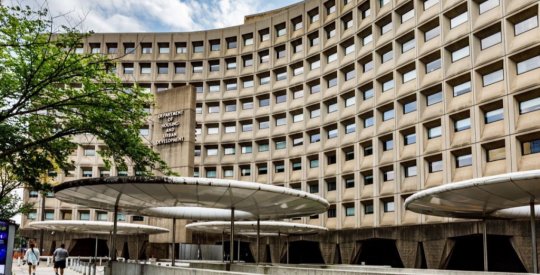Federal Reserve Chairman Ben Bernanke is not ruling out additional securities purchases by the central bank as the economic recovery continues to sputter. “Residential construction activity remains at an extremely low level,” Bernanke told the House Committee on Financial Services Wednesday. “The demand for homes has been depressed by many of the same factors that have held down consumer spending more generally, including the slowness of the recovery in jobs and income as well as poor consumer sentiment.” Bernanke says access to credit and unstable home prices are stifling a recovery in the real estate economy. The chairman reiterated the Fed’s forecast the economy will pick up speed in coming quarters, but stopped short of sounding confident. The “possibility remains that the recent economic weakness may prove more persistent than expected and that deflationary risks might reemerge, implying a need for additional policy support,” Bernanke told lawmakers. While lowering the federal funds rate is often one way to spur economic activity, lowering the funds rate again is impossible as it’s remained near zero since December 2008. “Another approach would be to initiate more securities purchases or to increase the average maturity of our holdings,” Bernanke told lawmakers. The Federal Reserve “could also reduce the 25 basis point rate of interest it pays to banks on their reserves, thereby putting downward pressure on short-term rates more generally.” The Fed’s accommodative policies have drawn criticism from economists and even a few Federal Reserve Bank leaders. The Fed’s well-known QE2, $600 billion Treasury-bond buying program ended June 30, with many economists suggesting some type of stimulus would be retained to help the sagging American economy. Christopher Whalen with Institutional Risk Analytics responded to Bernanke’s Wednesday comments saying, “The FOMC cannot leave rates at current levels or the financial system will collapse. The cost-benefit tipping point on ZIRP has long since been passed.” Bernanke, himself, conceded in front of lawmakers Wednesday that further easing may be necessary to breath life into the markets, while also admitting the approach could create unforeseen consequences. “Our experience with these policies remains relatively limited, and employing them would entail potential risks and costs,” he said. “However, prudent planning requires that we evaluate the efficacy of these and other potential alternatives for deploying additional stimulus if conditions warrant.” He added if the economy evolves in a positive direction, the Fed could draw back by shrinking its balance sheet and increasing the federal funds rate. At the moment, the Fed is projecting a 2.7% and 2.9% increase in gross domestic product for 2011 and 3.3 to 3.7% growth in 2012. Write to Kerri Panchuk.
Bernanke down on housing, admits more securities purchases possible
Most Popular Articles
Latest Articles
HUD walks back some proposed changes to HECM for Purchase program
Certain changes announced for the H4P program last year will not be implemented after public comments raised concerns, HUD and FHA said.
-
Key housing markets are starting to buck national trends: Redfin
-
Median payment on purchase mortgage applications rises to $2,201: MBA
-
HUD, USDA reach accord on energy-efficiency standard for new construction
-
U.S. mortgage delinquency rates remain near historic lows: CoreLogic
-
HomeServices settles commission lawsuits for $250M



